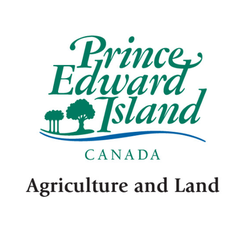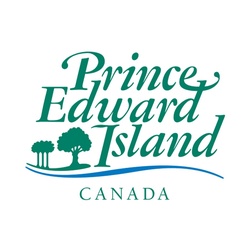
Alternative Land Use Services Program
At a glance
- No Condition
- Open Date : July 9, 2024
- Closing date : July 9, 2024
- Agriculture, forestry, fishing and hunting
- Prince Edward Island
- For-profit business
- Sole proprietorship
- All revenue ranges
- All organization sizes
- Indigenous Peoples
Overview
Agricultural landowners can get funding to establish or maintain beneficial management practices on agricultural land, or to remove targeted environmentally sensitive land from agricultural production.
Activities funded
The ALUS Program provides funding for projects that promote environmental conservation and agricultural sustainability. Eligible activities focus on transforming agricultural landscapes to enhance biodiversity and ecological health.
- Converting marginal or high-risk croplands into biodiverse, carbon-sequestering perennial landscapes, including expanded buffer zones, seasonally wet cropland, high slope cropland, and field margins.
- Maintaining land under soil conservation structures or natural hollows as permanent grass.
- Excluding livestock from watercourses and wetlands to protect water quality.
- Establishing and maintaining habitat and nectar sources for pollinators and other beneficial insects.
- Planting trees and shrubs on lands retired under the ALUS program.
- Delaying cutting and harvesting of grass in forage fields and deferring grazing of forages in pastures until after July 15th annually.
- Establishing and maintaining innovative agroforestry systems, such as eco-buffers, alternative shelterbelts, and silvopasture.
- Avoiding conversion and enhancing the management of previously enrolled ALUS features.
Eligibility
Eligibility for this grant is determined by specific recipient criteria related to the applicant's profile.
- The applicant must be a Mi’kmaq First Nation or another Indigenous group.
- Landowners leasing active agricultural land to an agricultural producer are eligible, with potential further documentation requirements.
- Agricultural producers are also eligible to apply for this grant.
Who is eligible?
Mi’kmaq First Nations and other Indigenous groups, landowners leasing active agricultural land to an agricultural producer, and agricultural producers who are engaged in eligible activities such as converting marginal croplands, maintaining land under conservation structures, excluding livestock from watercourses, and more.Who is not eligible
This grant focuses on environmental sustainability within agricultural contexts, and thus excludes certain activities that do not align with its conservation and regeneration goals. The restrictions help ensure that funding supports ecological practices on agricultural landscapes.
- Activities which are a requirement under regulation, such as 15m riparian buffer zones and regulated grassed headlands.
- Research and academic institution overhead fees.
- BRM-type activities (which typically focus on business risk management).
- Normal and ongoing operating and maintenance activities without additional ecological benefits.
- Activities that do not provide a direct benefit to the agricultural sector.
- Activities related to aquaponic food production, aquaculture, seaweed, fish and seafood production and processing.
- Activities which provide tax credits or rebates.
- Development and enforcement of regulations.
Eligible expenses
The ALUS grant aims to support agricultural practices that enhance ecological services and biodiversity. Eligible activities focus on transforming agricultural landscapes for environmental benefits.
- Converting marginal or high-risk croplands into biodiverse, perennial, carbon-sequestering landscapes.
- Maintaining land under soil conservation structures or natural hollows as permanent grass.
- Excluding livestock from watercourses and wetlands.
- Establishing and maintaining habitat and nectar sources for pollinators and beneficial insects.
- Planting trees and shrubs on ALUS-retired lands.
- Delaying cutting and harvesting of grass in forage fields and deferring grazing until after July 15th.
- Establishing and maintaining innovative agroforestry systems.
- Avoiding conversion and enhancing management of previously enrolled ALUS features.
How to apply
Prepare Necessary Information
- Complete the Application Form with applicant contact information.
- Include business or organization information, along with the CRA registration number.
- If applicable, provide partnership information.
- Identify additional sources of project funding.
- Select recipient type (i.e. primary producer, agricultural landowner, processor).
- Classify the type of industry (e.g., Dairy, potato, beef, hog, grains and oilseeds).
- Signature for declaration and consent to personal information is required.
- Provide demographic information (optional).
Complete ALUS Project Details
- For new ALUS participants, fill out Appendix A: ALUS New Feature Enrollment to register properties.
- For existing ALUS participants, fill out the ALUS Feature Renewal Appendix to re-enroll or enhance existing ALUS features.
- Fill out Appendix A: ALUS New Feature Enrollment to add new features if necessary.
Submit Application
- Email the completed application to ALUS@gov.pe.ca. Include program name in the subject line.
- Alternatively, send the application by regular mail to the PEI Department of Agriculture, 11 Kent Street, PO Box 2000, Charlottetown PE C1A 7N8.
Additional information
Here are additional relevant details for this grant:
- Agricultural producers applying for an ALUS feature on leased land will require a form signed by the farmland owner confirming the producer's eligibility to receive annual payments.
- Verification of application information or project completion may be conducted through site visits by ALUS Advisors or via aerial or satellite imagery.
- Annual independent field audits are required to confirm the presence of nesting bobolinks to continue receiving funding for delayed hay cutting and deferred grazing.
- Projects contributing to increasing public trust under the Sustainable CAP may qualify for additional funding.
Contacts
Frequently Asked Questions about the Alternative Land Use Services Program Program
What is the Alternative Land Use Services Program?
How much funding can be received?
What expenses are eligible under Alternative Land Use Services Program?
What is the deadline to apply?
Is the Alternative Land Use Services Program a grant, loan, or tax credit?
Who are the financial supporters of the Alternative Land Use Services Program?
Who is eligible for the Alternative Land Use Services Program program?
Who can I contact for more information about the Alternative Land Use Services Program?
Where is the Alternative Land Use Services Program available?
Are Indigenous Peoples eligible for the Alternative Land Use Services Program program?
More programs like this

Grow the Herd Pilot Program
Government of Prince Edward Island
Micro-Loan Program
Government of Prince Edward Island
Product and Market Development Program — Agricultural Industry Organizations
Government of Prince Edward Island
Livestock Strategy Program — Pollination Expansion
Government of Prince Edward Island
Product and Market Development Program — Agri-Businesses
Government of Prince Edward Island
Organic Industry Development — Certified Organic Land Conversion
Government of Prince Edward Island
Livestock Strategy Program — Strategic Livestock Industry
Government of Prince Edward Island
Livestock Strategy Program — Community Pasture
Government of Prince Edward Island
Agriculture Research and Innovation — Applied Research (Agribusiness and Academic Institutions)
Government of Prince Edward Island